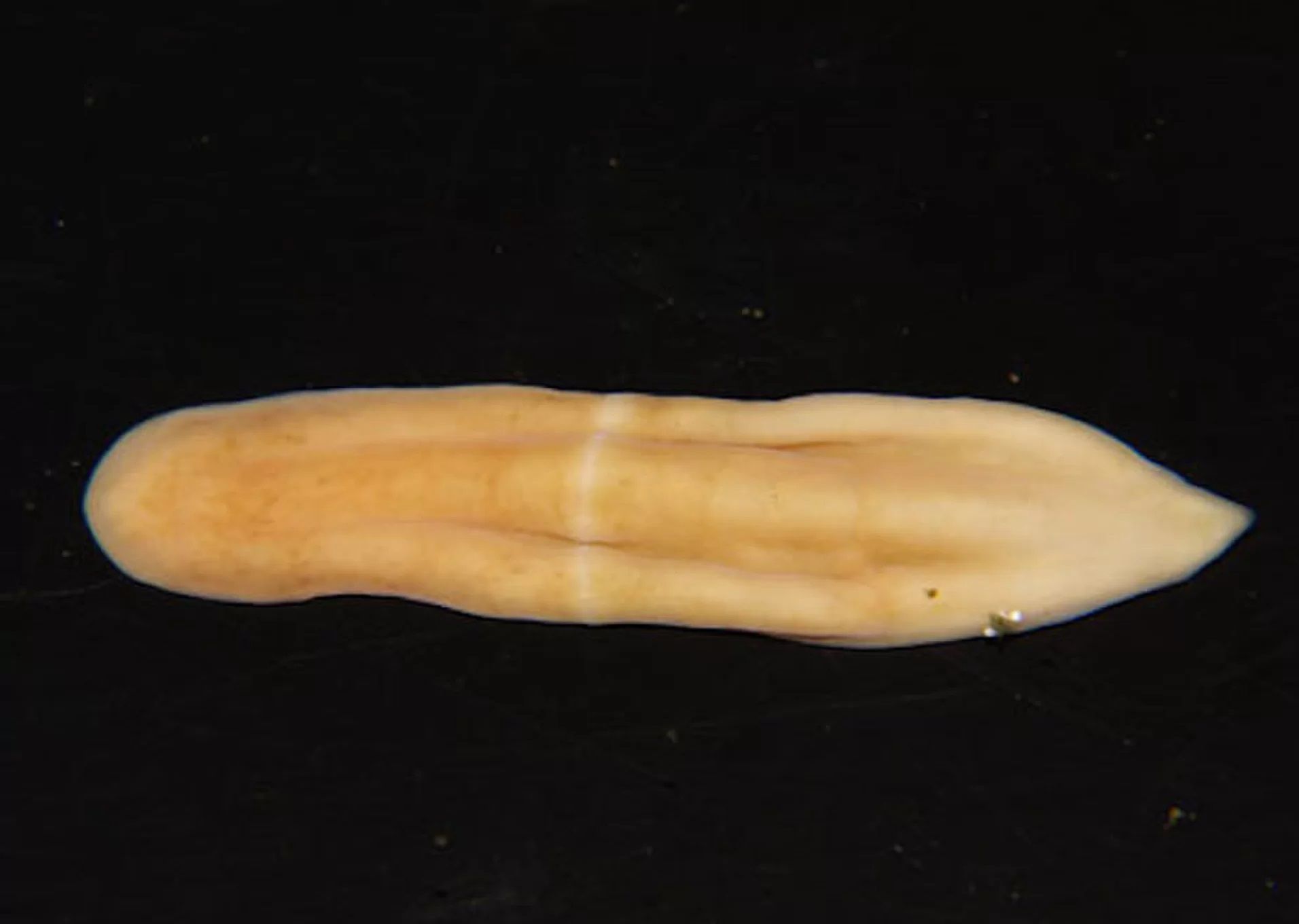
What goes in, must come out. That's true in most species of animals, which have mouths and anuses. But scientists recently discovered a new species of marine worm that's part of a genus which lacks anuses, raising the question: does it poop?
In the western Pacific Ocean, scientists from the University of Tsukuba in Japan discovered a yellowish primitive marine worm. After capturing a two-inch female and a 0.4-inch juvenile, they examined the specimens using MicroCT scanning.
What they found was that the creature somehow managed to survive despite missing several seemingly-important body parts including kidneys, reproductive organs, a central nervous system, an anus and even a brain. They lack the ability to breathe air, bleed or poop. However, they can eat, with tiny, oval-shaped mouths.
The scientists published a paper on the creature in the journal BMC Evolutionary Biology.
By analyzing the worm's DNA, they found that it belonged to the genus of primitive ocean worms Xenoturbella, and the researchers gave the creature the name Xenoturbella japonica. They also found that the body was contaminated with bivalve DNA, suggesting that X. japonica feeds on bivalves.
Xenoturbella is a group of simple, tiny, worm-like species that have almost no complexity to their body plans, which appeared near the root of the animal kingdom's tree of life.
The researchers make particular note of how the creature might fit on the evolutionary tree. There are several species of Xenoturbella already known to science, which fit into "shallow" or "deep" subgroups. But this new species shares traits from both groups. Therefore, X. japonica 's unique features might mean that it's an even more primitive, ancestral form of the the Xenoturbella group.
Other members of the genus do expel what they've eaten, but not through a back side. They have one opening that leads to their bag-shaped digestive track, and that's the same opening that they excrete from. The new species may well do the same.
This group of worms is typically difficult to access, living deep on the ocean floor. However, X. japonica is located right near a marine research station, so it may be an ideal animal to study in the future. It may even have more to teach researchers about weird, primitive worms and the history of life on Earth.
Uncommon Knowledge
Newsweek is committed to challenging conventional wisdom and finding connections in the search for common ground.
Newsweek is committed to challenging conventional wisdom and finding connections in the search for common ground.
About the writer
Kristin is a science journalist in New York who has lived in DC, Boston, LA, and the SF Bay Area. ... Read more
To read how Newsweek uses AI as a newsroom tool, Click here.








